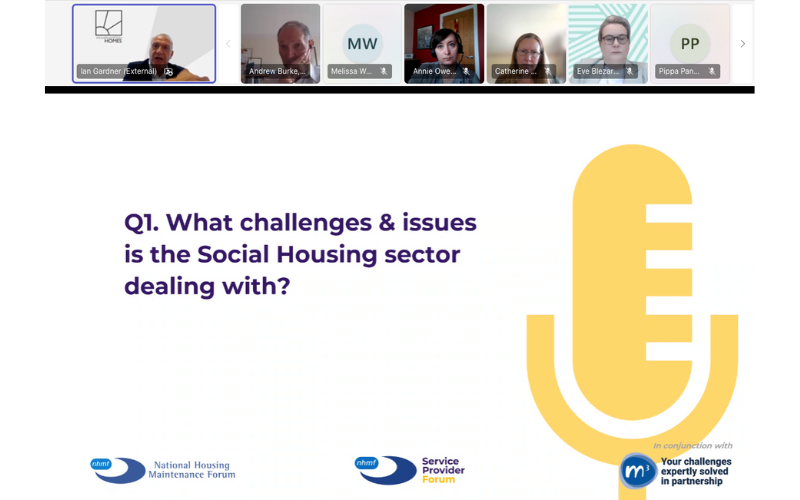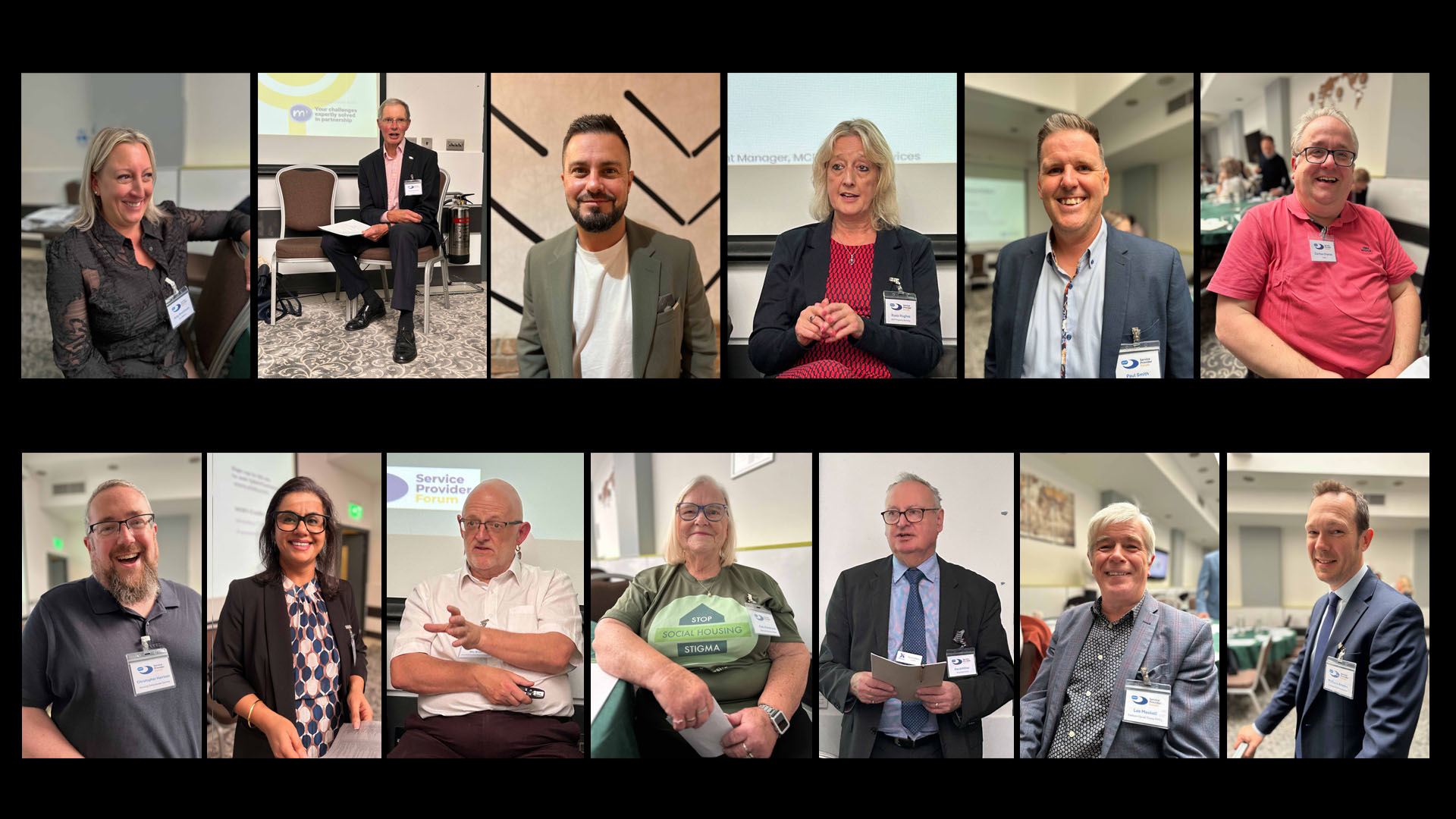NHMF Service Provider Forum Tackles Regulatory Pressures and Skills Crisis Head-On
The NHMF Service Provider Forum's 17th July 2025 virtual event delivered crucial insights into the mounting regulatory challenges facing social housing whilst showcasing innovative approaches to the sector's deepening skills crisis. The forum provided a timely platform for honest dialogue between social housing providers and service providers navigating an increasingly complex landscape.

Regulatory Tsunami: Data or Die
The morning's regulatory update session painted a sobering picture of the sector's current predicament. Annie Owens from the National Housing Federation highlighted the "breadth of challenges coming all at once," with housing associations spending a record £8.8 billion on repairs and maintenance last year – the third consecutive year of record spending.
Ian Gardner from Wolverhampton Homes crystallised the new reality with stark clarity: "It's all about evidence now. If you can't provide the evidence, it didn't happen." This sentiment echoed throughout the discussion as participants grappled with increased scrutiny from the housing ombudsman, new consumer standards, and the looming expansion of Awaab's Law in October.
The financial pressures are acute. Gardner revealed a 50% increase in service requests since the pandemic and a fourfold rise in damp and mould reports following the tragic Awaab Ishak case. With costs spiralling whilst rental income remains constrained, housing providers are caught in an increasingly tight squeeze.
Catherine Little from Campbell Tickell noted it's "the most difficult time I've ever seen to work in housing" in her 20-year career, citing not just regulatory complexity but the increasing challenges facing residents themselves – from safeguarding concerns to antisocial behaviour.
Skills Development: Growing Tomorrow's Workforce Today
Alex Hammond from Gentoo Group offered a masterclass in strategic workforce planning representing the NHMF’s Skills, Training and Apprenticeship working group session. Gentoo's impressive track record with 355 apprenticeships created since 2001 with over 95% completion rates – demonstrates what's possible with genuine commitment and innovative thinking.
Their Trade Academy partnership, engaging 14-16 year olds through collaboration with Sunderland College, represents forward-thinking workforce development. By providing full uniforms, covering travel expenses, and guaranteeing apprenticeship interviews upon completion, Gentoo removes the barriers that typically prevent young people from entering the trades.
Hammond's emphasis on selecting mentors for "attitude and behaviour, not just technical skills" resonated strongly, highlighting how culture change must accompany skills development. With 25 new apprentices joining this year and clear progression pathways beyond qualification, Gentoo's model offers a blueprint for others facing similar workforce challenges.
Learning from Abroad: The German Perspective
The day's final session delivered fascinating insights from Julian Ransom and Mike Turner into the recent NHMF study tour to Germany. Their findings challenged assumptions about European housing provision whilst reinforcing universal sector challenges, and a full report will follow soon.
Germany's tenure-blind approach, where 80% of Berliners rent without stigma, contrasts sharply with UK attitudes. The absence of "social housing" terminology and lighter regulatory touch initially seems enviable. However, Germany faces identical challenges: skills shortages, spiralling retrofit costs, and asbestos nightmares causing massive delays.
The tour revealed Germany's heavy investment in AI and efficiency technologies, with one provider employing 100 in-house IT developers. Yet interestingly, German providers focus technology investment on productivity rather than client integration – a different philosophy that sparked lively debate amongst attendees.
Service Provider Opportunities Amid the Challenges
Throughout all sessions, clear opportunities emerged for proactive service providers. Catherine Little emphasised that contractors are "the face of the landlord 80% of the time," underlining their critical role in resident satisfaction and safeguarding.
The forum identified key areas where service providers can add value: robust data collection systems, safeguarding awareness during routine visits, cost-effective technological solutions, and genuine partnership working that goes beyond traditional client-supplier relationships.
Eve Blezard from CIH captured the positive potential, suggesting the new Decent Homes Standard could become an umbrella framework pulling together disparate requirements into coherent delivery programmes. She emphasised the opportunity to "pull those together and they made sense in reality and practice" rather than having different policy areas operating in silos.
Annie Owens stressed the importance of service providers recognising vulnerable residents during routine visits, noting they're often in homes "more regularly than some people in the landlord themselves."
Looking Ahead
As Melissa Woodall closed the forum, the message was clear: whilst the sector faces its most challenging period in decades, collaboration between housing providers and service contractors has never been more vital. The successful organisations will be those that embrace innovation, invest in their people, and maintain unwavering focus on evidenced outcomes.
Members can access comprehensive one-page summaries of each session, whilst those interested in joining future discussions should visit the NHMF website to find out more about becoming a member of the NHMF Service Provider Forum. The next meeting on October 2nd promises to continue these essential conversations as the sector navigates its path through unprecedented change.
Find out more about the SPF here


